What is The Purpose of The Bible and How Is It Organized? – Part 1
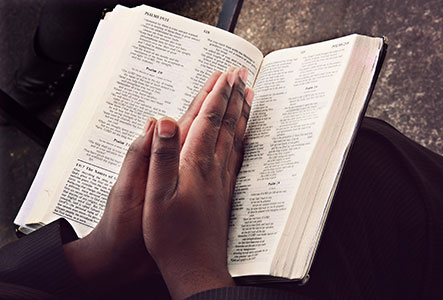
The purpose of the Bible is to provide a written “Testimony” of God’s interface with mankind.
This record includes provisions of God’s instructions, Laws, History, Prophecy, Plans, his own attributes, to:
- reveal knowledge of the Godhead (Father, Son and Holy spirit),
- reveal the knowledge and history of mankind (body, mind, soul and spirit),
- reveal the nature of the creation (its beginning, its end and some of its workings)
- provide insight into some of his Glorious Mysteries (in accordance to the Godhead’s will and purpose for mankind and the whole of creation)
These connected statements and phrases may seem all over the place, but keep in mind, a human is being asked to explain, the purpose of why God provided the Bible. The best look into the question would be to answer it, just as it was asked. The way it was asked, “What is the purpose of the Bible and how is it organized?” is a well-placed and thought out question by the provider. Because the second part of the question, answers the first part. That is to say, in the organization of the Bible we can see the purpose of God, presented in the very layout of the Bible itself.
OLD TESTAMENT AND NEW TESTAMENT
The first and obvious division is that of the Old Testament and the New Testament, and the best statement to describe their relationship is that of our own African Methodist Episcopal Church Article of Religion…
Article 6. OF THE OLD TESTAMENT: “The Old Testament is not contrary to the New; for both in the Old and the New 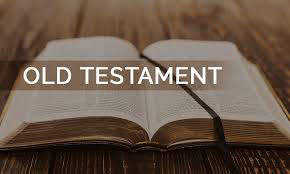 Testament, everlasting life is offered to mankind by Christ, who is the only Mediator between God and man, being both God and man. Wherefore, they are not to be heard, who feign that the old fathers did look only for transitory promises. Although the law given from God by Moses, as touching ceremonies and rites, doth not bind Christians, nor ought the civil precepts thereof of necessity be received in any commonwealth; yet notwithstanding, no Christian whatsoever is free from the obedience of the Commandments, which are called moral.the
Testament, everlasting life is offered to mankind by Christ, who is the only Mediator between God and man, being both God and man. Wherefore, they are not to be heard, who feign that the old fathers did look only for transitory promises. Although the law given from God by Moses, as touching ceremonies and rites, doth not bind Christians, nor ought the civil precepts thereof of necessity be received in any commonwealth; yet notwithstanding, no Christian whatsoever is free from the obedience of the Commandments, which are called moral.the
 Testament, everlasting life is offered to mankind by Christ, who is the only Mediator between God and man, being both God and man. Wherefore, they are not to be heard, who feign that the old fathers did look only for transitory promises. Although the law given from God by Moses, as touching ceremonies and rites, doth not bind Christians, nor ought the civil precepts thereof of necessity be received in any commonwealth; yet notwithstanding, no Christian whatsoever is free from the obedience of the Commandments, which are called moral.the
Testament, everlasting life is offered to mankind by Christ, who is the only Mediator between God and man, being both God and man. Wherefore, they are not to be heard, who feign that the old fathers did look only for transitory promises. Although the law given from God by Moses, as touching ceremonies and rites, doth not bind Christians, nor ought the civil precepts thereof of necessity be received in any commonwealth; yet notwithstanding, no Christian whatsoever is free from the obedience of the Commandments, which are called moral.the This article of religion, though some may say it is difficult to understand, is really simple; it is stating that the purpose of both Old and New Testament is to offer Christ to mankind, and to announce and establish that Christ is the expressed Word or “Voice” of the God Head and the expressed image of the God Head to mankind. And that his role as mediator between God and Man, spawns from his humanity and his deity as God, and it is that which makes him a true mediator. The term Son of Man, which Jesus often called himself is not a casual term, it is very significant. The title Son of Man, comes from The Prophet Daniel’s vision in
Chapter 7, verse 13 “In my vision at night I looked, and there before me was one like a son of man, coming with the clouds of heaven. He approached the Ancient of Days and was led into his presence. 14 He was given authority, glory and sovereign power; all nations and peoples of every language worshiped him. His dominion is an everlasting dominion that will not pass away, and his kingdom is one that will never be destroyed.
I believe this passage is showing us a vision of Jesus, being received and reunited in heaven, with the father (called the Ancient of Days) and the Holy Spirit back into heaven, after his birth by the Holy Spirit through the Virgin Mary; and after his earthly ministry, his death and resurrection.
Acts 1:9 New King James Version (NKJV), supports this, as it is stated, 9 “Now when He had spoken these things, while they watched, He was taken up, and a cloud received Him out of their sight.”
In this passage Christ (the Son of Man), having finished the work given him by the father, reunites with the Godhead and in the moment is given eternal dominion again over all nations and peoples of the world. Something he had before, but was stolen, as the fall of Adam and Eve in the Garden, encumbered all mankind with a weight of sin, in which only a Savior, like Jesus could bear and relieve and he did.
The other part of this Article speaks to the notion that the early Jewish Nation, looked to tangible or physical promises of the law. For example, the assurance that the land would yield good crops for them, long life and prosperity if they obey the law. From Exodus 20:12 “Honor your father and your mother, that your days may be long in the land that the Lord your God is giving you.” “The land shall yield her fruit, and ye shall eat your fill, and dwell therein in safety.” (Lev. 25:19) In Lev. 26:4,5 “I will give you rain in due season, and the land shall yield her increase, and the trees of the field shall yield their fruit. And your threshing shall reach unto the vintage, and the vintage shall reach unto the sowing time: and ye shall eat your bread to the full, and dwell in your land safely.”
These passages show that there was an expectation God created, which linked the physical welfare of the Jewish Nation to their observance of the Law and the Commandments. Additionally, this Article of religion, states that this effect, was not God’s sole and entire reason for providing the Law and the ordinances coming from the law. But rather, the Law was not transitory, applying to just those physical things. Indeed it is spiritual and pertains to us even today, even we who are not of the Jewish nation by birth. Though a kindred based on “Faithful Abraham”, as many as the stars in heaven, were born of the Spirit of the law, from this “Abraham-like belief in what God can Do”. Genesis 15:6 6 “Abram believed the Lord, and he credited it to him as righteousness.”
The Article finishes by stating that though we as “Christians” in Christ, are no longer bound to the Law, as it relates to the rites and ceremonies identified for the Jewish people yet we are still nonetheless held to the “moral codes” contained in the Law; (the underlying intent or purpose of why the particular law was given by God). This is what Jesus dedicated a significant part of his earthly ministry to, the teaching of this to the religious leaders, the lawyers (scribes) and the people of his day.
A ready example, of this principle of the moral code of the law,
and Jesus teaching 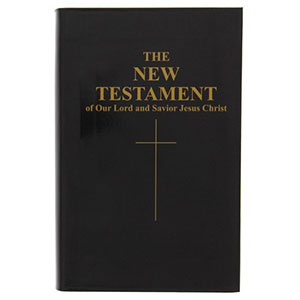 people these underlying principles in the commandment, is the passage from Matthew 15: 3-7, He answered them, “And why do you break the commandment of God for the sake of your tradition? 4 For God commanded, ‘Honor your father and your mother,’ and, ‘whoever reviles father or mother must surely die.’ 5 But you say, ‘If anyone tells his father or his mother, “What you would have gained from me is given to God,” 6 he need not honor his father.’ So for the sake of your tradition you have made void the word of God. 7 You hypocrites!
people these underlying principles in the commandment, is the passage from Matthew 15: 3-7, He answered them, “And why do you break the commandment of God for the sake of your tradition? 4 For God commanded, ‘Honor your father and your mother,’ and, ‘whoever reviles father or mother must surely die.’ 5 But you say, ‘If anyone tells his father or his mother, “What you would have gained from me is given to God,” 6 he need not honor his father.’ So for the sake of your tradition you have made void the word of God. 7 You hypocrites!
 people these underlying principles in the commandment, is the passage from Matthew 15: 3-7, He answered them, “And why do you break the commandment of God for the sake of your tradition? 4 For God commanded, ‘Honor your father and your mother,’ and, ‘whoever reviles father or mother must surely die.’ 5 But you say, ‘If anyone tells his father or his mother, “What you would have gained from me is given to God,” 6 he need not honor his father.’ So for the sake of your tradition you have made void the word of God. 7 You hypocrites!
people these underlying principles in the commandment, is the passage from Matthew 15: 3-7, He answered them, “And why do you break the commandment of God for the sake of your tradition? 4 For God commanded, ‘Honor your father and your mother,’ and, ‘whoever reviles father or mother must surely die.’ 5 But you say, ‘If anyone tells his father or his mother, “What you would have gained from me is given to God,” 6 he need not honor his father.’ So for the sake of your tradition you have made void the word of God. 7 You hypocrites!In this passage, Jesus demonstrates that the moral basis for obeying the Law must be upheld throughout. In this case it is “respect for your mother and father”, no ordinance, ceremony or rite can relieve one of the requirement to respect their parents. Even when parents act in ways to provoke disrespect, the situation must still be handled in a way that will preserve one in their duty to perform the moral aspect of the Law, which would be, to solve the conflict, while still respecting one’s parents.
The Law as stated throughout both the Old and New Testament is good, and was given by God for a good purpose. For the Word of God through the Apostle Paul in Romans 2, 14 states…
“Indeed, when Gentiles, who do not have the law, do by nature things required by the law, they are a law for themselves, even though they do not have the law. 15 They show that the requirements of the law are written on their hearts, their consciences also bearing witness, and their thoughts sometimes accusing them and at other times even defending them. 16 This will take place on the day when God judges people’s secrets through Jesus Christ, as my gospel declares.”
Scroll to the bottom of the page to share your thoughts, questions and comments thus far?
Recommended Posts
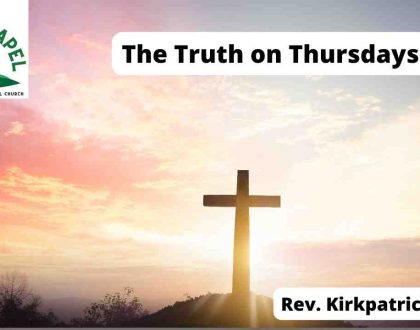
Truth on Thursdays
June 08, 2023
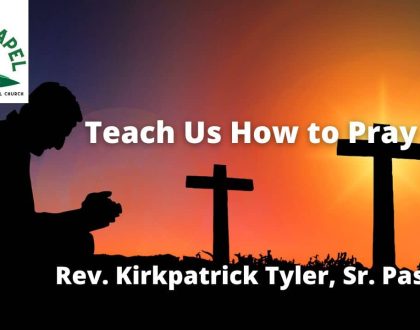
How Do I Know God Is Answering My Prayers?
October 20, 2022

“Work For God ” – Join The Lay Organization
March 18, 2022

